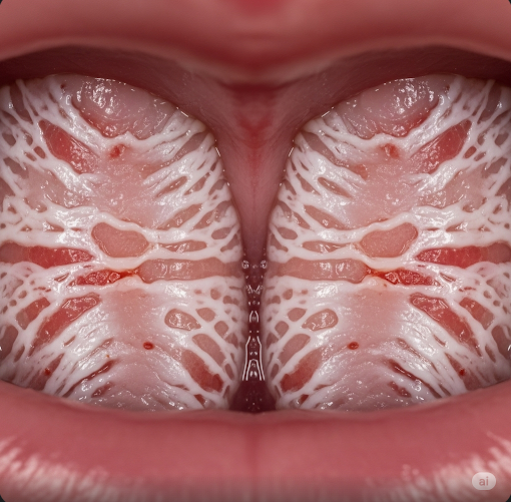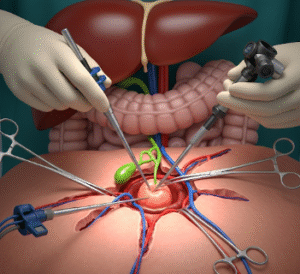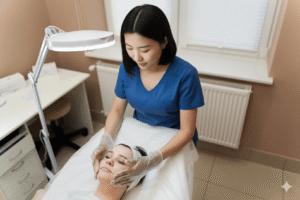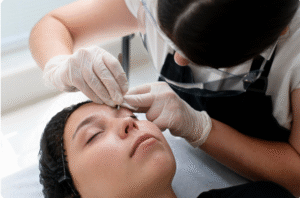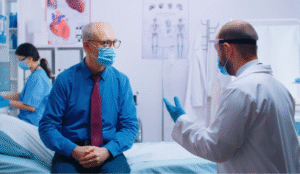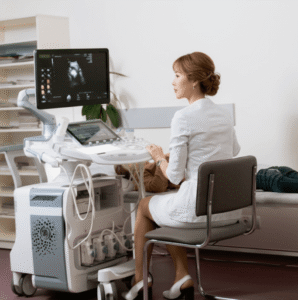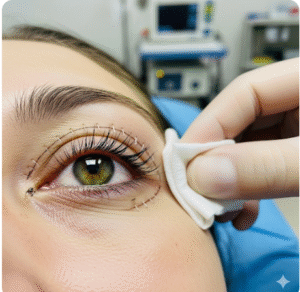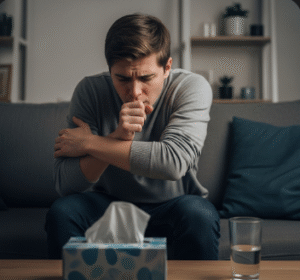Overview
Oral lichen planus is a chronic inflammatory condition that affects the mucous membranes inside the mouth. It typically appears as white, lacy patches; red, swollen tissues; or painful sores. The condition is not contagious, but it can cause discomfort and make everyday activities like eating or brushing teeth difficult. While the exact cause remains unclear, it is believed to be related to an autoimmune response. Early diagnosis and long-term management are essential for controlling symptoms and preventing complications.
What is Oral Lichen Planus?
Oral lichen planus is a persistent autoimmune disorder in which the body’s immune system mistakenly attacks the tissues of the mouth. It commonly affects the inner cheeks, tongue, gums, and lips. The appearance can vary—from asymptomatic white streaks to painful erosive or ulcerative lesions. Though not considered a life-threatening disease, some forms may increase the risk of developing oral cancer. The condition may be isolated to the mouth or associated with lichen planus affecting the skin or other mucosal surfaces.
Symptoms
- White, lace-like patches (Wickham striae) inside the cheeks or on the tongue
- Red, inflamed, or swollen areas in the mouth
- Pain or burning sensation, especially when eating spicy or acidic foods
- Bleeding or sensitivity when brushing
- Ulcers or open sores that do not heal easily
- Dry mouth or metallic taste in some cases
- Discomfort or irritation from dentures or dental appliances
Causes
The exact cause of oral lichen planus is not fully known, but it is generally considered an autoimmune condition. Possible contributing factors include:
- Immune system dysfunction
- Genetic predisposition
- Allergic reactions to dental materials or certain medications
- Viral infections such as hepatitis C
- Stress or hormonal changes
- Dental trauma or irritation
Risk Factors
- Being female (oral lichen planus is more common in women)
- Middle-aged or older adults
- Having other autoimmune diseases
- Family history of lichen planus or autoimmune disorders
- Chronic stress or anxiety
- Exposure to dental materials like amalgam fillings
- Use of medications such as NSAIDs, beta-blockers, or antihypertensives
Complications
- Painful erosions that interfere with eating and oral hygiene
- Increased risk of secondary infections (bacterial or fungal)
- Gingival inflammation and periodontal disease
- Psychological distress due to persistent symptoms
- Risk of malignant transformation into oral squamous cell carcinoma (rare but significant)
- Poor quality of life and dietary limitations
Prevention
- Maintain excellent oral hygiene and visit the dentist regularly
- Avoid known triggers, including certain medications or dental materials
- Reduce stress through mindfulness, therapy, or lifestyle changes
- Avoid spicy, acidic, or rough foods that may irritate the lesions
- Quit smoking and limit alcohol intake
- Use a soft-bristled toothbrush to minimize irritation
- Manage underlying systemic conditions, if present
Treatment Option in Korea
South Korea offers top-tier care for autoimmune and oral mucosal disorders, including oral lichen planus. Treatment focuses on symptom management and reducing inflammation. Common options include:
- Topical corticosteroids: First-line treatment to reduce inflammation and control symptoms
- Systemic medications: For severe or unresponsive cases, doctors may prescribe oral corticosteroids or immunosuppressive drugs
- Topical anesthetics: To relieve pain and discomfort during eating or oral care
- Antifungal therapy: To treat or prevent secondary yeast infections, especially when corticosteroids are used
- Laser treatment: Available at some advanced dental or dermatology clinics to reduce lesions with minimal side effects
- Regular monitoring: Routine biopsies or exams to ensure there are no signs of cancerous changes
Leading facilities such as Seoul National University Dental Hospital, Yonsei University College of Dentistry, and Samsung Medical Center offer state-of-the-art diagnostic tools and personalized treatment plans. Patients, including international visitors, benefit from expert care and bilingual services tailored for oral autoimmune conditions.

